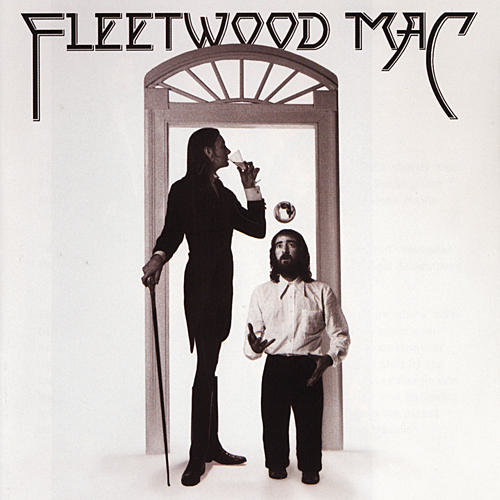
Fleetwood Mac (1975)

1. Monday Morning
2. Warm Ways
3. Blue Letter
4. Rhiannon
5. Over My Head
6. Crystal
7. Say You Love Me
8. Landslide
9. World Turning
10.Sugar Daddy
11.I'm So Afraid
Another lineup change. By 1975, such occurrences in the Fleetwood Mac universe had ceased to register as anything remarkable. Guitarists, singers, even entire identities seemed to pass through the revolving door unchecked. Bob Welch was the latest to quietly exit stage left, and into the breach stepped one Lindsey Buckingham—then part of a little-known duo with his girlfriend, Stevie Nicks. Buckingham Nicks had produced exactly one commercially unsuccessful LP, though pockets of the American South (notably Mobile, Alabama, for reasons no one has ever fully explained) treated them like regional royalty. Initially, it was Buckingham alone who was invited to join Mac. But he insisted—insisted—that Nicks come too. Given the group’s ever-fluid personnel record, no one likely batted an eye.
And then it happened. This self-titled album—technically their tenth—would sell more copies than all previous Mac records combined. It didn’t just mark a turning point; it launched an entirely new incarnation of the band. One built not on blues licks or British eccentricity, but on sharp songwriting, layered harmonies, and a chemistry that no producer or A&R executive could have possibly planned for. Christine McVie, Stevie Nicks, and Lindsey Buckingham weren’t just compatible—they were, together, combustible.
Christine McVie, for her part, remained exactly as she’d always been: consistent, melodic, and effortlessly tasteful. But now, with the band finally under a broader spotlight, the public took notice. Over My Head and Say You Love Me became hits, her smooth contralto and warm melodic instinct proving tailor-made for radio. Perhaps Nicks’ ethereal harmonies added a new gloss—but McVie’s sensibility was always there, simply waiting for the right frame. Nicks herself arrived not so much with a bang as with a drift of mysticism. She played no instrument, but her presence was undeniable. Rhiannon introduced her as a myth-maker—a swirling, enigmatic figure whose songs felt culled from some personal dreamscape. It quickly became not only her signature tune, but one of the defining tracks of 1970s rock. Landslide, meanwhile, offered a more fragile, introspective side, with an emotional clarity that seems to deepen with age. Few songs have grown so gracefully in cultural stature.
Then there was Buckingham—the architect, the technician, the catalyst. He didn’t write the biggest hits, nor did he possess the most instantly recognizable voice. But his influence on the album’s sound and direction is everywhere. His fingerpicking guitar technique, equal parts classical finesse and rock aggression, defined the new Mac aesthetic. Tracks like World Turning (a co-write with McVie) and I'm So Afraid show him at his most inventive—one moment exuberant, the next twitching with tension. He was less interested in flash than form, and in so doing, gave the band a sense of purpose it had never fully realized before.
It’s tempting to declare a “best” among the new trio, but doing so misses the point. This was a rare alchemy. Each brought something the others lacked. McVie’s grounded musicality, Nicks’ mystique, Buckingham’s precision. Future versions of the band would often lose one or more of this triad—and with it, some of the magic. But on this record, everything clicks.
Fleetwood Mac is more than a commercial turning point. It is the band’s true second debut—an audacious reinvention that no one, least of all the band themselves, could have predicted. That it works as well as it does is a minor miracle. That it led to Rumours is something else entirely. But even without hindsight, this album stands tall: a reinvention not born of design, but of accident and instinct—and all the more glorious for it.
Go back to the main page
Go To Next Review